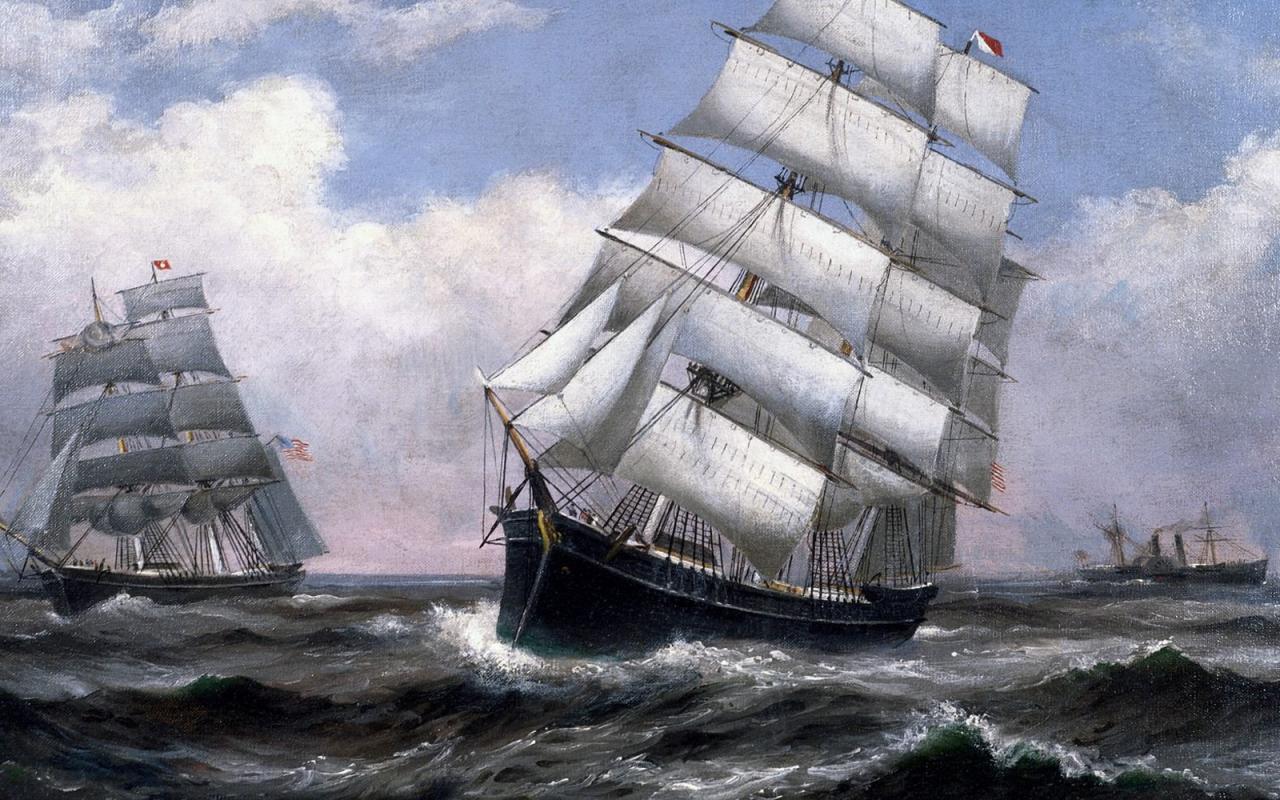
Ian Brookes is a freelance writer and editor based in Scotland. He has edited a number of dictionaries and has written books about spelling, writing, and punctuation. In this post, he looks at the origins of several nautical metaphors still used in English today.
Learning English might be easier if people would actually say what they mean. Unfortunately English-speakers often express ideas in terms of a metaphor rather than by a literal description. So when we talk about being ‘all at sea’, we do not literally mean that we are out in the ocean, but rather that we are unsure about what to do, as though we were drifting on the water without the reassurance of firm ground beneath our feet.
Metaphors can be difficult enough to decipher even when you are familiar with the objects of comparison. In many cases, however, metaphors refer to things that are rarely, if ever, encountered any more. We still talk about something that is briefly successful as a flash in the pan, even though this refers to an old type of gun in which gunpowder made a flash in a compartment called a ‘pan’ when it was primed before firing. The original point of the comparison is now forgotten, but the idiom survives.
The same is true of many words and expressions that originally referred to sailing. Great Britain is an island nation; in the days before air travel, mastery of the sea was essential to the nation’s defence and trade. In modern times ships play a less important role, and they tend to be powered by engines rather than sails. Yet many expressions derived from sailing remain embedded in the English language. Knowing this may shed light on some apparently obscure terms.
A flagship, for example, was the most important ship in a fleet, which carried the fleet’s admiral and flew his flag. In modern English, however, the word is more likely to be used as a metaphor, so a company’s flagship store is the one that has the most importance and prestige. A mainstay was originally a rope that supported the main mast of a ship, but now is a metaphor referring to any person or thing that provides crucial support, as in tourism is a mainstay of the economy.
The influence of sailing can also be seen in some idiomatic phrases. To sail close to the wind refers to the risky practice of attempting to fill a ship’s sails with wind without losing control of it. This phrase is now used as an idiom: if you tell someone that they are sailing close to the wind you are warning them that they are doing something that is dangerous or possibly illegal. To batten down the hatches literally refers to closing the entrances to the lower part of a ship when a storm is expected, but metaphorically refers to any preparation to withstand a period of difficulty. If a ship has run aground and is unable to return to the water, it is said to be high and dry, an expression we also use to refer to a person who is left in a difficult situation without any assistance.
Some similar phrases have now lost all their original associations with sailing. It may come as a surprise to learn that under way, meaning ‘in progress’, was originally a nautical phrase meaning ‘in motion’. Another example is by and large: to the old sailors, this meant ‘in all conditions’, whether sailing into the wind (sailing by) or with the wind (sailing large), but it is doubtful whether many current English speakers are aware of this when they use the phrase to mean ‘in general’.